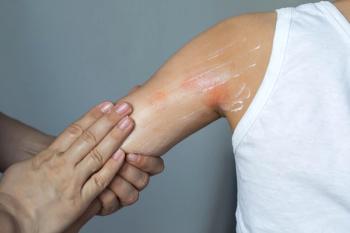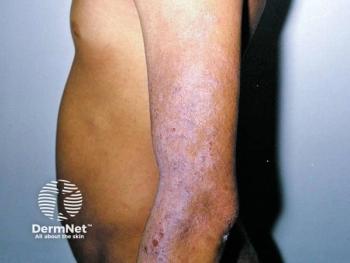
First link established between human papillomavirus and SCC
National report - Researchers at Dartmouth Medical Schoolhave for the first time established an association betweeninfection with certain strains of human papillomavirus (HPV) andincreased risk for developing squamous cell carcinoma (SCC).
National report - Researchers at Dartmouth Medical School have for the first time established an association between infection with certain strains of human papillomavirus (HPV) and increased risk for developing squamous cell carcinoma (SCC).
"The idea is not new because we have already seen evidence of these viruses in tumors of patients, particularly those who are immunosuppressed," says Margaret R. Karagas, Ph.D., professor of epidemiology at Dartmouth and the lead author of the paper that appeared in the March 15 issue of the Journal of the National Cancer Institute.
But most of that work has involved alpha types of HPV and has been conducted around cervical, breast and other cancers that are included in cancer registries. Cutaneous cancers are not as well recorded and research into associations with viral infections lags behind.
The population-based study involved 252 patients with SCC and 525 with basal cell carcinoma (BCC), matched to 461 case-controlled subjects. It measured plasma samples using multiplex serology to detect antibodies to 16 different alpha, beta and mu variants of HPV.
"Overall, we detected HPV antibodies more frequently in SCC patients than in controls," Dr. Karagas says, with an odds ratio of 1-to-6. The association was strongest in those with seropositivity for the beta cluster of HPV strains, most notably HPV 5, with an odds ratio of 1-to-8.
Sun, viral link
Dr. Karagas says, "Individuals with tumors on chronically sun exposed sites were more likely to be seropositive for beta HPV types than individuals with SCC at other anatomic sites. This leads us to suspect that there may be an interaction with sun exposure." The risk of SCC appears to increase as seropositivity for multiple types of HPV increases.
Transplant recipients on immunosuppressants to prevent organ rejection have a very high risk of developing skin cancers, and those tumors tend to contain the mucosal beta type HPVs. This strongly suggests to her that immunosuppression is probably an important cofactor in the development these types of cancer. It also would help to explain why SCC often emerges later in life, as natural immune function wanes.
The study found no association between HPV antibody seropositivity and the presence of BCC.
One interesting finding among the controls was that men had a statistically significant higher prevalence of HPV antibodies than women (28.2 percent versus 19.3 percent; P=.03). Aside from that, rates of HPV seropositivity did not differ by age, level of education, smoking status, skin sensitivity or number of sunburns.
Study strengths
Dr. Karagas says the strength of the study is that it is population-based, while earlier work has "relied upon single clinic-based samples or small sample sizes." It is a large study that involves multiple sites, not just a single clinic, and the patients were not immunosuppressed.
Limitations
The downside is that the patient population was almost exclusively white, so it is not possible to generalize beyond that group.
"Skin cancer may be a very different disease in nonwhite populations. Unfortunately, we don't know a lot about the etiology of skin cancer in nonwhite populations; there is very little study," Dr. Karagas says.
Future study direction
The next step in their research will be to incorporate serologic evidence and tumor evidence in the same study to try to establish causality.
Dr. Karagas says, "If this is shown to be causal, it does open up possibilities for the treatment of tumors and, in prevention, the possibility of a vaccine. From a clinical standpoint, we're not there yet, but just the idea that a virus may be involved with a very common tumor - we don't normally think of skin cancer as being related to HPV."
Newsletter
Like what you’re reading? Subscribe to Dermatology Times for weekly updates on therapies, innovations, and real-world practice tips.












